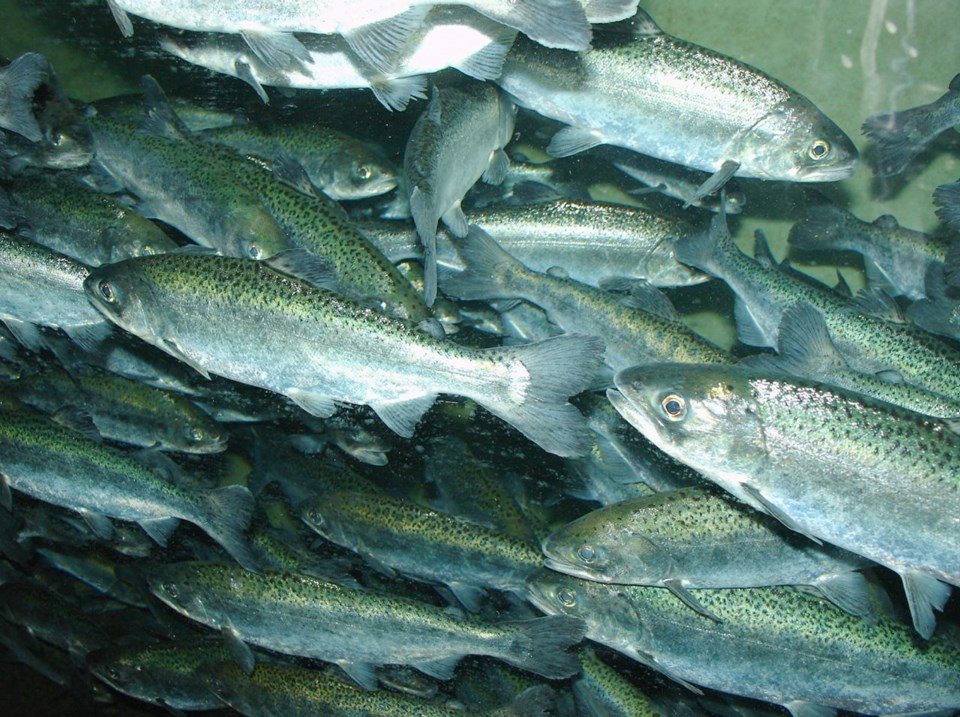By June 20, Premier John Horgan will decide whether to renew 20 salmon-farm tenures, one-fifth of the B.C. industry. This is a make-or-break moment for salmon farming in B.C.
While the industry is doing its best to present itself as good for B.C., British Columbians have lived with this industry for more than 30 years, and the diversity of voices warning the premier not to renew these tenures has become an unparalleled crisis for the industry.
The B.C. government’s own advisory council on salmon farming recommends that Indigenous governments have the power to veto salmon farms in their territories. All of the expiring tenures are in territories where Indigenous governments trying to remove the industry, and so Horgan’s commitment to reconciliation should guide him to allowing these tenures expire.
However, this is not just a First Nations issue. The Association of Vancouver Island Municipalities, which includes the towns receiving the most direct benefits from salmon farming, just voted in a resolution to transition salmon farms out of the ocean. This suggests problems with the salmon-farming economy.
The Pacific Salmon Foundation, which stayed out of the fight for decades, is so alarmed at the impact of the industry, that it announced that salmon farms must be removed from wild-salmon migratory routes as soon as possible.
Fifty of BC’s finest chefs recently held a press conference vowing to never serve farm salmon.
Washington state passed a bill not to renew Atlantic salmon-farm licences and prohibited Atlantic farm salmon infected with piscine reovirus, because the state views the virus as a threat to wild salmon.
However, Canadian Fisheries Minister Dominic LeBlanc is committed to the opposite direction, and is fighting to legalize piscine-reovirus-infected farm salmon.
One virus, two countries, opposite positions. This is a problem.
With the industry admitting that 80 per cent of B.C. farm salmon are infected with piscine reovirus, any tenure that Horgan renews becomes a potential infection site for Washington state salmon migrating through B.C. waters.
The rising number of lawsuits is a troubling indicator. The salmon farmers are seeking injunctions against Indigenous people and challenging 800-year old laws, established by the Magna Carta, hoping to create unprecedented private ocean perimeters around their farms to prevent observation of conditions in the farms.
Meanwhile the ’Namgis of Alert Bay have sued the minister of fisheries to stop piscine reovirus-infected farm fish from entering their territory and the Dzawada’enuxw of Kingcome Inlet filed a title claim stating that salmon farms are not authorized to be in their territory. The 20 expiring tenures are in these waters.
Farming salmon sounds like a good idea. However, industries relying heavily on public resources are eventually pressured to reduce their footprint. Fortunately, there is another way. Land-based salmon-farming megaprojects are breaking ground in the U.S., with more springing up around the world.
The NDP government is caught in the fish-farm turbulence. If Horgan makes a try-to-please-everyone non-decision, no one will be fooled. This has progressed far beyond a couple of scientists and organizations. Reconciliation will be shipwrecked; Washington state will be tracking B.C. viruses in their rivers, and democracy climbs into the back seat, hoping the courts will rule the province.
Conversely, if Horgan lets the salmon-farm tenures expire, he will stimulate the innovation this industry desperately needs for its own survival. He will be the first government to walk the reconciliation talk, and he will give wild salmon, which feed the trees that make the oxygen we breathe, and the B.C. economy, a chance to come home to us long into the future.
Alexandra Morton is an independent biologist who has published extensively on the impact of salmon farms.



